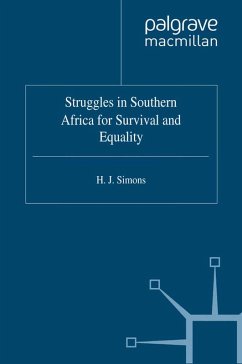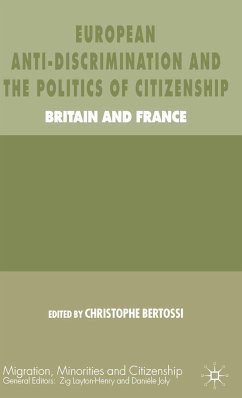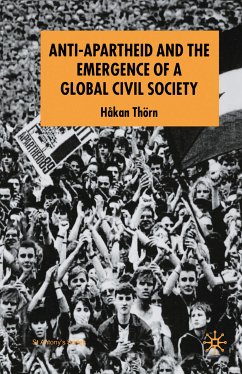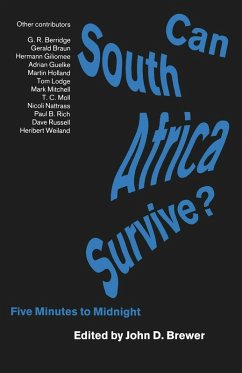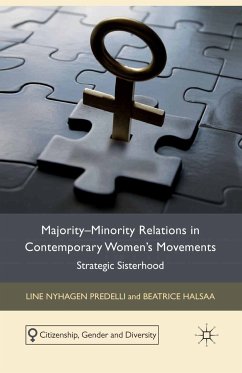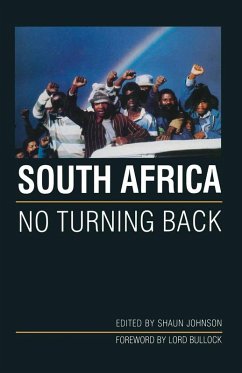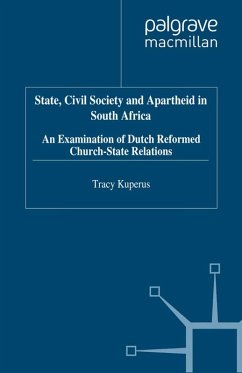
State, Civil Society and Apartheid in South Africa (eBook, PDF)
An Examination of Dutch Reformed Church-State Relations
Versandkostenfrei!
Sofort per Download lieferbar
40,95 €
inkl. MwSt.
Weitere Ausgaben:

PAYBACK Punkte
20 °P sammeln!
An examination of the role played by civil society in the legitimisation of South Africa's apartheid regime and its racial policy. This book focuses on the interaction of dominant groups within the Dutch Reformed Church and the South African state over the development of race policy within the broader context of state-civil society relations. This allows a theoretical examination and typology of the variety of state-civil society relations. Additionally, the particular case study demonstrates that civil society's existence in and authoritarian situations can deter the establishment of democrac...
An examination of the role played by civil society in the legitimisation of South Africa's apartheid regime and its racial policy. This book focuses on the interaction of dominant groups within the Dutch Reformed Church and the South African state over the development of race policy within the broader context of state-civil society relations. This allows a theoretical examination and typology of the variety of state-civil society relations. Additionally, the particular case study demonstrates that civil society's existence in and authoritarian situations can deter the establishment of democracy when components of civil society identify themselves with exclusive, ethnic interests.
Dieser Download kann aus rechtlichen Gründen nur mit Rechnungsadresse in A, B, BG, CY, CZ, D, DK, EW, E, FIN, F, GR, HR, H, IRL, I, LT, L, LR, M, NL, PL, P, R, S, SLO, SK ausgeliefert werden.




